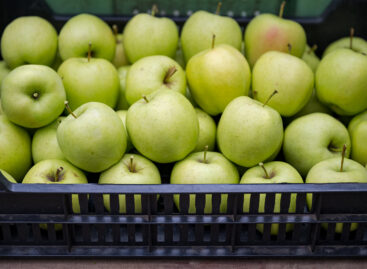Why is Tokaj aszú cheaper in Switzerland than in Hungary?
Although it may be surprising, in some cases a quality Tokaji aszu is cheaper in Switzerland than in Hungary. This contradiction highlights the challenges of the Hungarian wine market and export, as well as international competition, writes Pénzcentrum. The most recent example is the 2013 5-putton Tokaj aszu from Diznókő, which sells for 36.50 francs in Switzerland, i.e. approx. It is available for 15,400 forints, while in some places in Hungary they charge up to 18,490 forints, according to the Pénzcentrum article.
Differences in prices and their reasons

The reasons for price differences are diverse, but they can also be traced back to simple factors. One of the most important factors is the different VAT: Hungary’s VAT of 27% is the highest in Europe, while it is only 8.1% in Switzerland. In addition, the various taxes imposed on Hungarian retail trade, such as the special retail tax, as well as the EPR fees and the excise tax rate, also contribute to higher prices. While in Switzerland aszú is a premium product, but “just one wine among many”, in Hungary it is considered a luxury drink, which further increases the price.
The international presence of Hungarian wine
Hungarian wineries, including Tokaj wines, have won recognition at international competitions, but their presence on the wider world market is limited. According to Lajos Braunmüller, the editor-in-chief of Agrársektor, Tokaj aszú has achieved outstanding success globally, especially through the Royal Tokaj winery, but other Hungarian wineries cannot produce in such a volume as to have a serious impact on the international market. Despite the excellent quality, Hungarian wines – with the exception of Tokaj Aszút – find it difficult to reach the wider strata of the world’s wine consumers.
Wineries such as Jammertal, Szepsy, St. Andrea, or the smaller Losonc winery are among the successful actors of the Hungarian wine industry, but they too cannot provide a significant export volume. Success in international markets requires a larger number of bottles and expensive and long-term marketing campaigns.
Related news
Exports could be a breakthrough opportunity for Hungarian farmers
🎧 Hallgasd a cikket: Lejátszás Szünet Folytatás Leállítás Nyelv: Auto…
Read more >Related news
Nestlé to sell remaining ice-cream assets but commits to Froneri venture
🎧 Hallgasd a cikket: Lejátszás Szünet Folytatás Leállítás Nyelv: Auto…
Read more >Lidl guarantees fairer prices for cocoa farmers
🎧 Hallgasd a cikket: Lejátszás Szünet Folytatás Leállítás Nyelv: Auto…
Read more >40 secure jobs, sustainable solutions – new BURGER KING® in Csepel
🎧 Hallgasd a cikket: Lejátszás Szünet Folytatás Leállítás Nyelv: Auto…
Read more >








